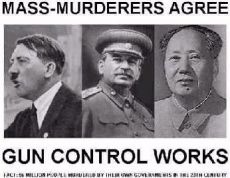Judicial Activism
Friday, August 18, 2006
A judge has ruled the terrorist surveillance program unconstitutional.
While I have been (and continue to be) a fence-sitter on this issue for some time, concerned both for the First and Fourth Amendment implications of this program, I have ruled this decision a clear-cut case of judicial activism.
I've read the opinion, and after doing so, I'm still unsure of the constitutionality of the program. I'm no closer to an opinion than I was before. The judge has clarified NOTHING.
First of all, I have an issue with granting blanket constitutional rights to non-Americans, especially those who openly depise America and call themselves our enemies. These people have made their intentions very clear: Convert to their ultra-wacko brand of Islamic religion and espouse their Islamofascist backwards way of life or die. All free people in the world are their targets, and they have vowed martyrdom in achieving their goals.
The very Constitution that protects Americans and our rights to life, liberty, and property is under assault by these people, and they have now succeeded in using it to their advantage by extending constitutional protection to those who seek to destroy the very same Constitution.
Regardless of the constitutionality of the program itself, it is very clear what the ACLU and its minions are up to here - protecting the terrorists.
Of course, the judge was anything but impartial.
It was never the intent of the Framers to give the President such unfettered control, particularly where his actions blatantly disregard the parameters clearly enumerated in the Bill of Rights. The three separate branches of government were developed as a check and balance for one another. It is within the court's duty to ensure that power is never "condense[d] ... into a single branch of government." Hamdi v. Rumsfeld, 542 U.S. 507, 536 (2004) (plurality opinion). We must always be mindful that "[w]hen the President takes official action, the Court has the authority to determine whether he has acted within the law." Clinton v. Jones, 520 U.S. 681, 703 (1997). "It remains one of the most vital functions of this Court to police with care the separation of the governing powers . . . . When structure fails, liberty is always in peril." Public Citizen v. U.S. Dept. of Justice, 491 U.S. 440, 468 (1989) (Kennedy, J., concurring).Cite the "parameters" if you care to have Americans agree with you. The whole purpose of this case was to determine just that - whether any rights were disregarded. While these things are addressed in the rest of the opinion to some degree, this is the most vital place to mention them, given their proximity to such strong words as "blatantly disregard", a phrase I have myself used here to describe judicial, legislative, and executive actions that were unconstitutional.
I also take issue with Judge Taylor's statement about checks and balances. Clearly, it's been liberal activist courts that have "condensed" all the power int their favor over the past hundred years. Why else would there have been such a clamor over judges like Roberts and Alito, who had established in one way or another that the Constitution would be their guide? Who will "police with care" the courts?
Here's more proof of bias ...
The Government appears to argue here that, pursuant to the penumbra of Constitutional language in Article II, and particularly because the President is designated Commander in Chief of the Army and Navy, he has been granted the inherent power to violate not only the laws of the Congress but the First and Fourth Amendments of the Constitution itself.This judge should have recused herself from the case due to known personal bias. There is no way a judge making a statement like this in an official court document will rule with impartiality.
The Defendant's argument here (and Judge Taylor knows this) is that the Constitution and the laws of the Congress provide provisions for intgelligence gathering with regard to known enemies like al-Qaeda. Here's the actual text of the Constitution that is being used to defend the program:
The President shall be Commander in Chief of the Army and Navy of the United States, and of the Militia of the several States ... (Article II, Section 2)Does this grant the President broad intelligence-gathering privileges? Judge Taylor does not address this directly, as any reasonable American should expect, but does make a roundabout reference to a 1952 case regarding a president's order to sieze steel mills, the so-called relevant text being this ...
In the Youngstown case the same "inherent powers" argument was raised and the Court noted that the President had been created Commander in Chief See generally Youngstown, 343 U.S. 579 (1952)of only the military, and not of all the people, even in time of war.Of course, she does not address the fact that intelligence-gathering is a military operation, and that the wiretaps involved known or suspected enemies of the United States. She does not address to what extent the First and Fourth Amendments apply to foreigners, particularly sworn enemies of the US; and she does not make any statements regarding to what extent these rights should apply to those who sympathize with or, apparently have professional responsibilities that include working with these animals, such as lawyers and reporters.
Our founding philosophy states that all men are created equal and with unalienable rights to life, liberty, and the pursuit of happiness (property). Our Constitution guarantees these rights.
Still, how do these rights apply to those, particularly foreigners and sworn enemies of the US, who wish to take those rights away from us, and those who associate with them? I don't know, and Judge Taylor has been no help.
Judge Taylor, if the program is unconstitutional, fine. If it's constitutional, fine, but check your own agenda at the door. You failed to do so in this case, and you haven't persuaded me one way or the other.
RWR








































